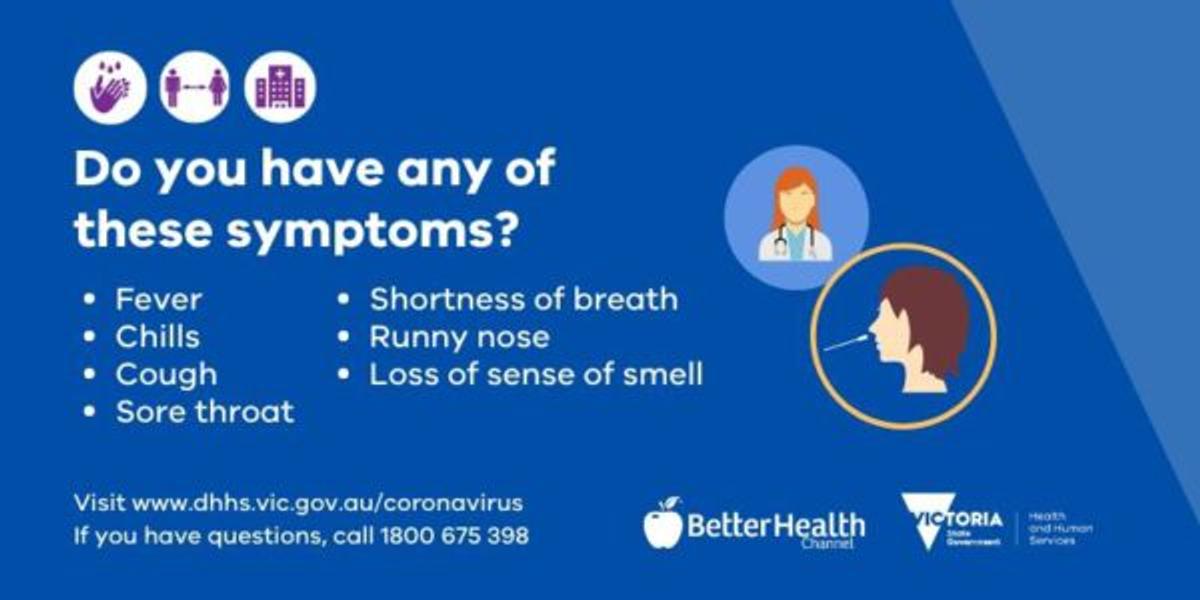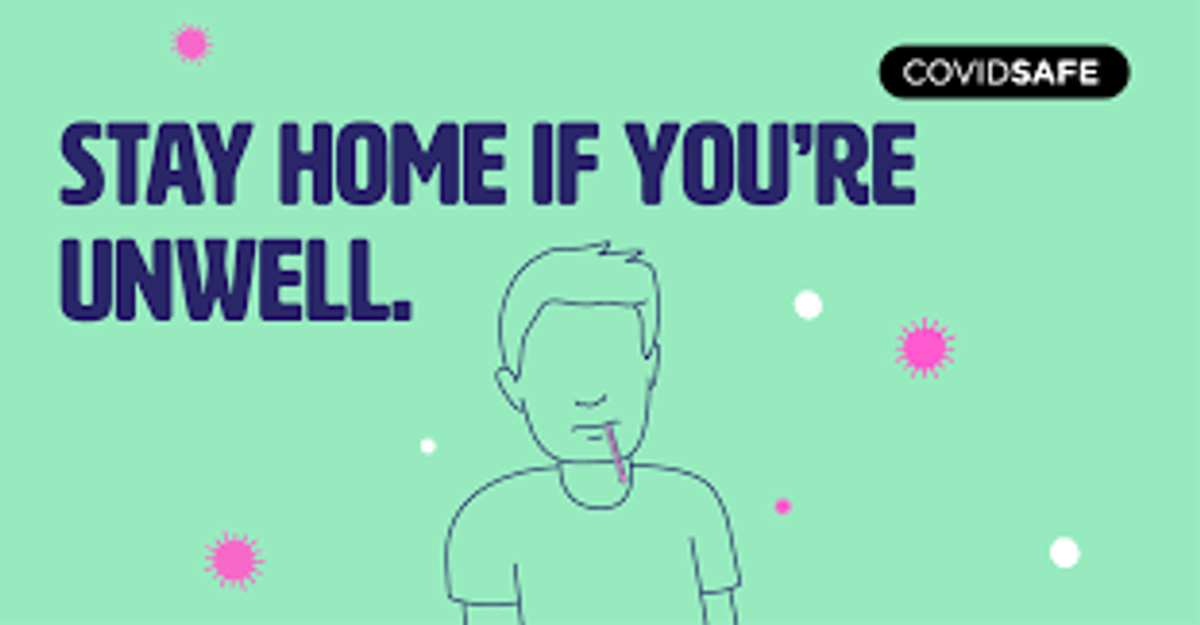Safety News
RETURNING TO ON SITE LEARNING AND COVID SYMPTOMS

Safety News
RETURNING TO ON SITE LEARNING AND COVID SYMPTOMS
Although the current advice is to continue Remote Learning at home, preparing for a return to on site learning is important. The following information concerns any person staff or student who are exhibiting any COVID-19 symptoms. (Current advice from the DET School Operations Guide 10 September)


COVID-19 symptoms include:
Most common symptoms:
Less common symptoms:
Serious symptoms:
difficulty breathing or shortness of breath
chest pain or pressure
loss of speech or movement
Students and staff should continue to be vigilant and remain home if unwell. Further information can be found in Managing illness in schools and early childhood services during the COVID-19 pandemic.
Hand hygiene remains one of the critical measures to reduce COVID-19 transmission. Hands should be cleaned with an alcohol-based hand sanitiser or washed with soap and water for 20 seconds. Students and staff should be encouraged to cough or sneeze into their elbow or into a tissue and then disposed of.
Physical distancing should be encouraged where possible and density limits implemented in office spaces and areas generally accessed by the public, such as reception. Congestion within the school and at entry points should be avoided where feasible by adjusting drop-off and pick-up processes, signage and one-way flow of individuals in more confined spaces such as locker bays and canteens.


The most important action school communities can take to reduce the risk of transmission of COVID-19, is to ensure that any unwell staff and students remain at home and get tested, even with the mildest of symptoms.
Students and staff with underlying conditions (such as hay fever or asthma)
If a student or staff member has persistent symptoms due to an underlying condition such as hay fever or asthma, the student should still be tested for COVID-19 if they develop symptoms that are different to or worse than their usual symptoms.
Parents/carers and staff should also consider getting a medical certificate from their treating GP to confirm that it is safe for them to attend school with persistent symptoms that may overlap with some of the symptoms of COVID-19 such as cough or runny nose.
Young children with persistent mild symptoms
Younger children (pre-school up to Grade 2) may have prolonged post-viral symptoms such as a runny nose or cough and may return to school following a negative COVID-19 test even if they are not completely free of symptoms. They will need a medical certificate from their GP to confirm they are otherwise well or have recovered from their acute illness. Any worsening of symptoms will require review and repeat COVID-19 testing, if considered appropriate by the doctor.
Students with a negative COVID-19 test whose symptoms have completely resolved do not need a medical certificate to return to the school. For further information for schools and to distribute to families see: Managing illness in schools and early childhood services during the COVID-19 pandemic.
The information below is advised by the Department of Education and Training,
Safer Care Victoria and the Department of Health and Human Services
When a student is onsite displaying COVID-19 symptoms:
Student and staff member to put on a single use face mask
Student to be escorted to designated isolation area:
Contact parent/carer to collect the student as soon as possible:
When in the isolation area:
Parent/carer to collect the child from the isolation area:
Recommended websites: